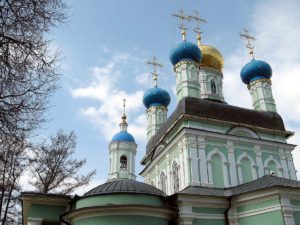 “When I consider everything that grows, Holds in perfection but a little moment, That this huge stage presenteth nought but shows, Whereon the stars in secret influence comment.”
“When I consider everything that grows, Holds in perfection but a little moment, That this huge stage presenteth nought but shows, Whereon the stars in secret influence comment.”
(SON.15)
While considering the lies (except one), uttered by Obama at Mandela’s funeral, I returned to the “Brothers Karamazov”, as a kind of “phylosophy’s sweet milk” and extracted the following observation by the Elder Zosima.
“For the world says you have needs, therefore satisfy them, for you have the same rights as the noblest and richest men. Do not be afraid to satisfy them, but even increase them. This is the current teaching of the world. And in this they see freedom. But what comes of this right to increase one’s needs. For the rich, isolation and spiritual suicide, for the poor envy and murder, for they have been given rights, but have not yet been shown any way of satisfying their needs. We are assured that the world is becoming more and more united, is being formed into brotherly communion, by the shortening of distances, by the transmitting of thoughts through the air. Alas, do not believe in such a union of people. Taking freedom to mean the increase and prompt satisfaction of needs, they distort their own nature, for they generate many meaningless and foolish desires, habits, and the most absurd fancies in themselves. They live only for mutual envy, for pleasure seeking and self display. To have dinners, horses, carriages, rank, and slaves to serve them is now considered such a necessity that for the sake of it, to satisfy it, they will sacrifice life, honor, the law of mankind, and will even kill themselves if they are unable to satisfy it. We see the same thing in those who are not rich, while the poor, so far, simply drown their unsatisfied needs and envy in drink. But soon they would get drunk on blood instead of wine, they are being led to that, I ask you, is such a man free.”
What was the lone truth of Obama’s speech? When he invoked the civil rights movement in the US—with which he had no association—and compared it to the struggle against apartheid in South Africa. “As was true here, it took the sacrifice of countless people—known and unknown—to see the dawn of a new day,” he said. “Michelle and I are the beneficiaries of that struggle.”
This is indeed true. The mass struggles of African-Americans to achieve fundamental rights in the battle against the apartheid of the American South led to a conscious policy by the American ruling class. They cultivated a privileged layer of the black upper-middle class, elements of which were brought into the political and economic establishment.
This policy led to the decision of big money interests to make Obama a president. By so doing, they exploited his status as America’s first black president to hide and mask the regressive and reactionary policies being pursued by the US government at home and abroad.
In the Sonnet. Sonnet 15 belongs to the third stage of Shakespeare’s sonnets, in which he immortalizes his dear friend in verse, thereby saving him from the ravages of all-consuming time
